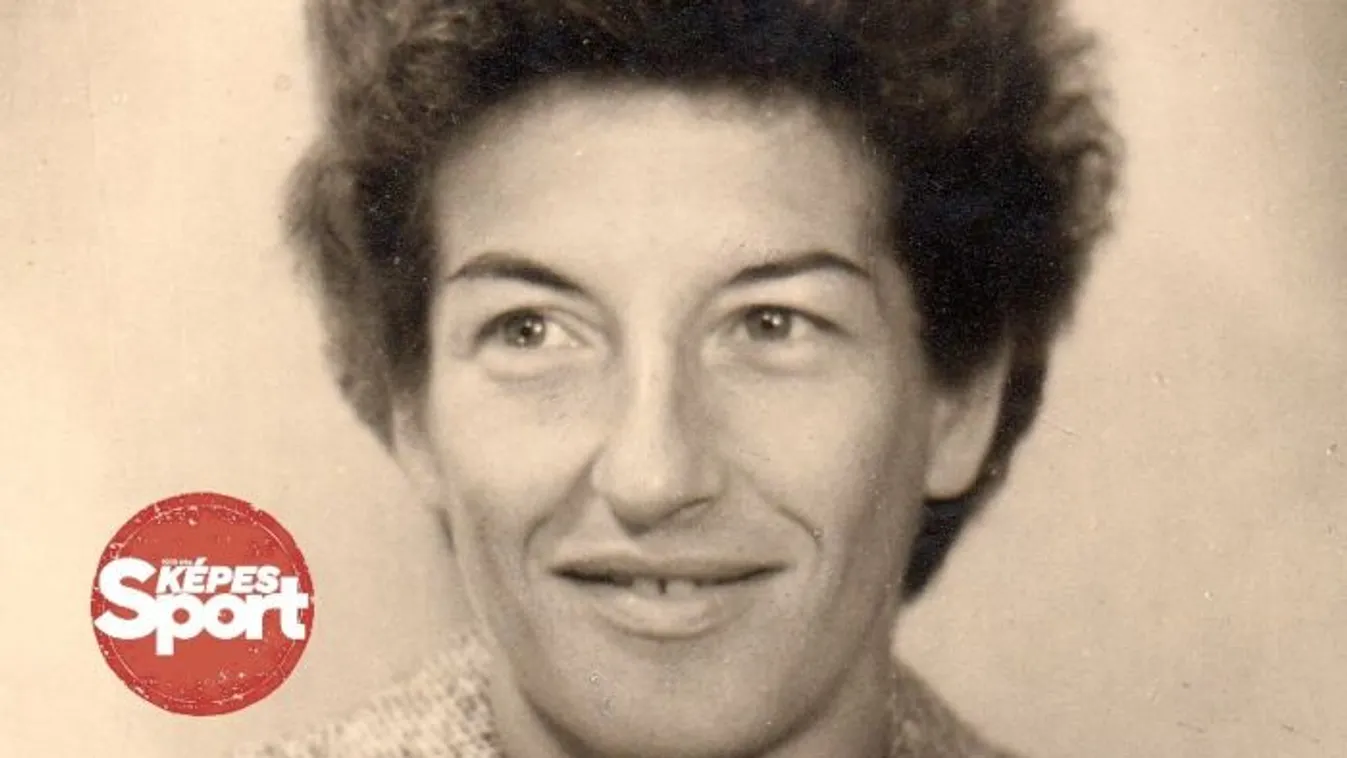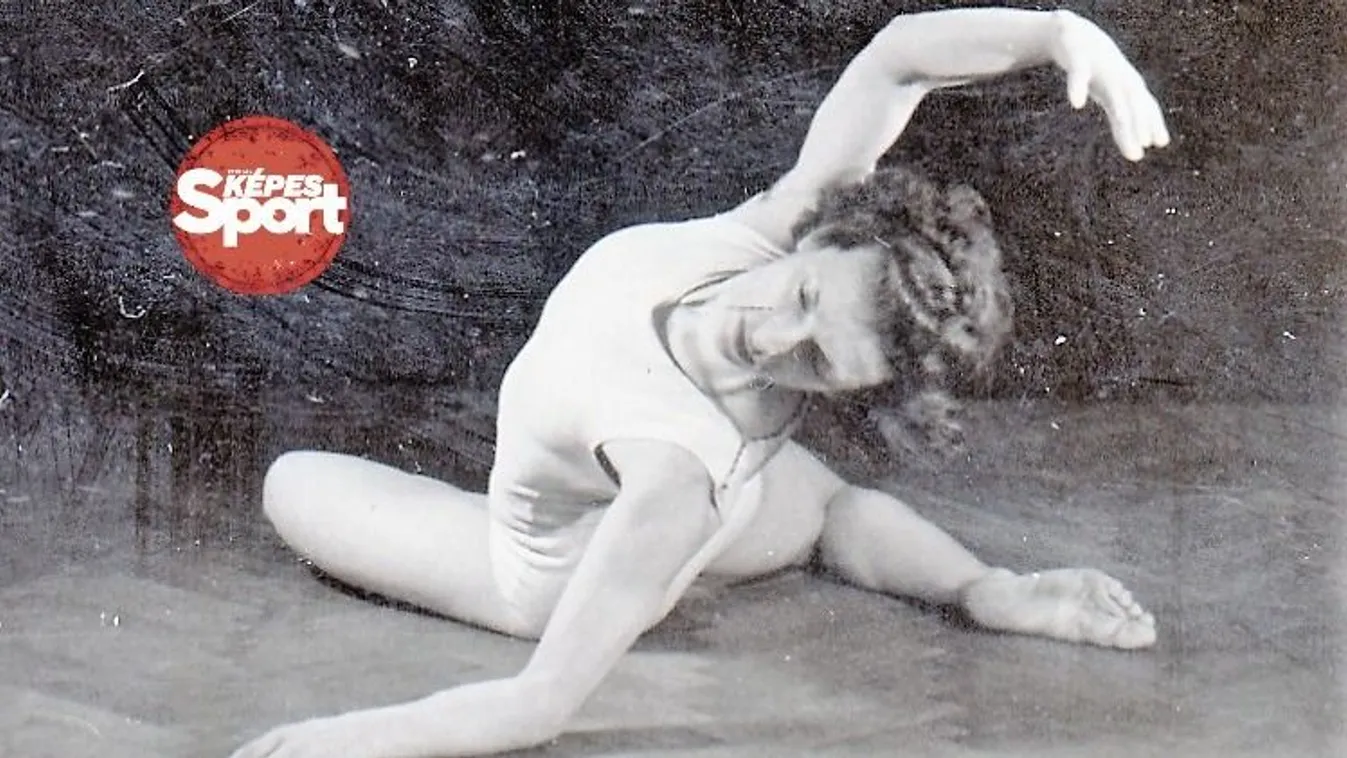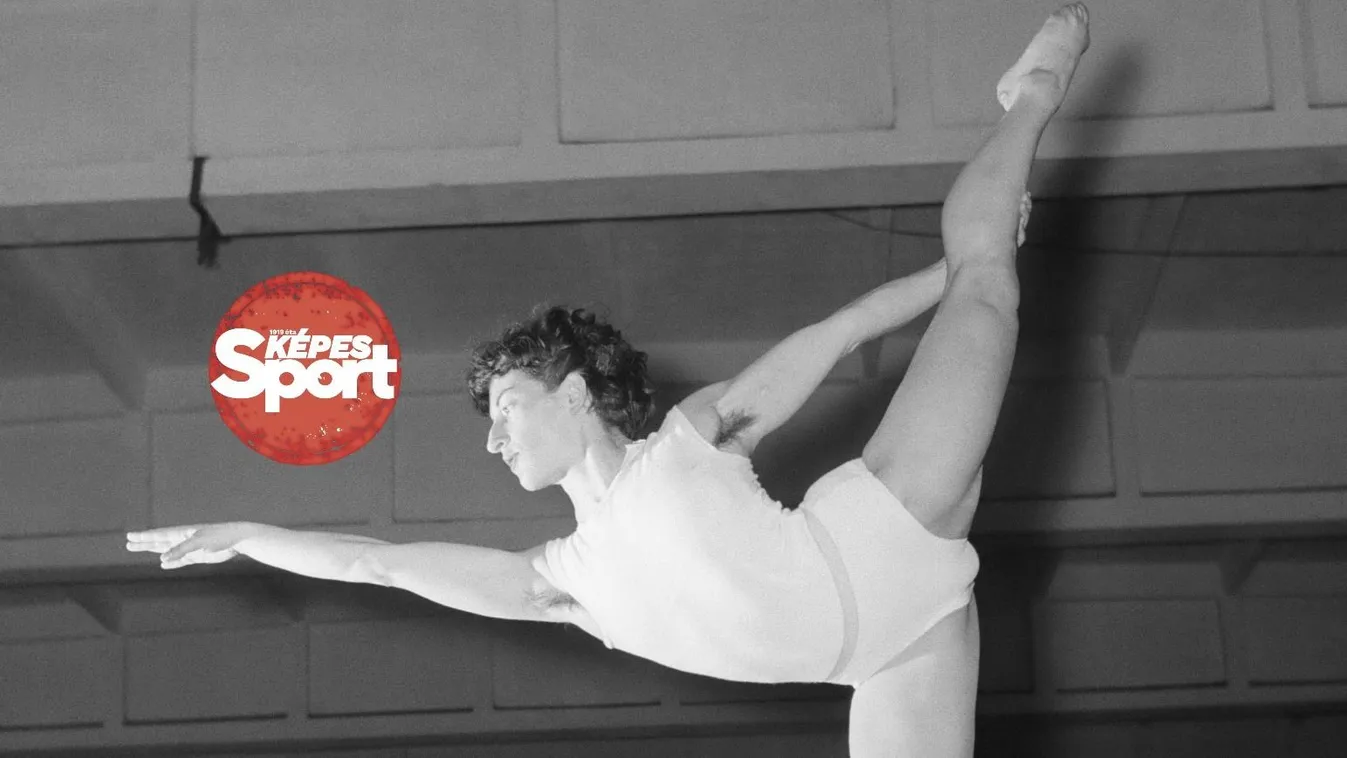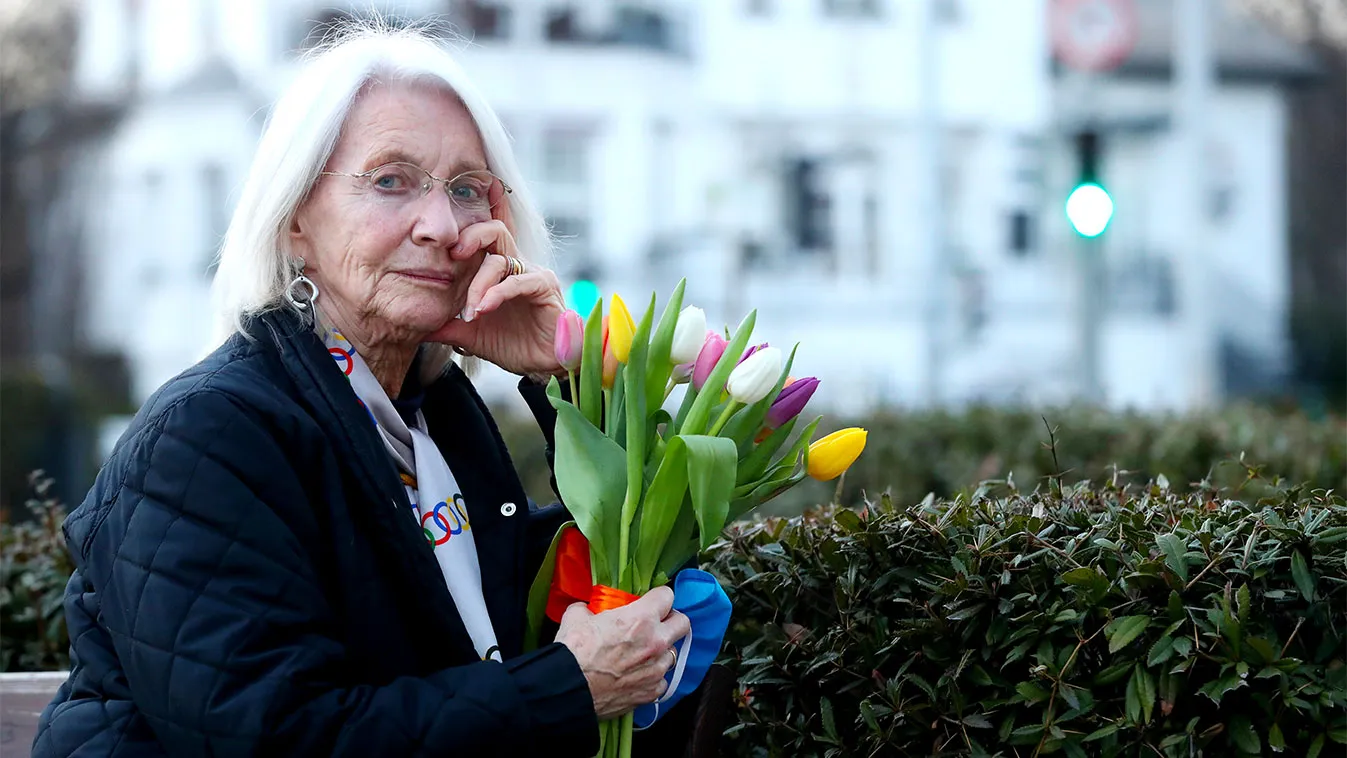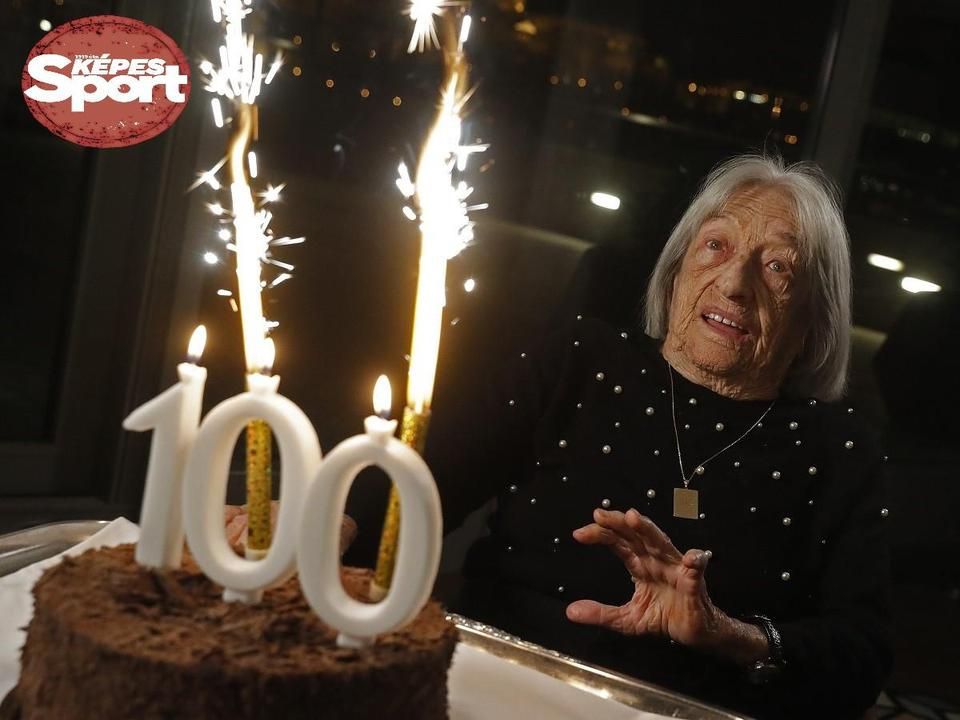
Short video of Saint Nicholas Day. She dances in the living room with her son Rafael. Her movement is loose, doesn't break, feels the rhythm. Playful, yet strange, heavy moments and seconds. A shifted world somewhere in downtown. It is as if I can't hear the music anymore, I can only sense her and the veil-like time around her that now seem like the endless waves of a hundred years. Around the figure dancing in the molten space, the waves are erased and swallowed up by characters from vanished ages and systems; the long-unseen faces of dictators and democrats roll back and forth; bars, balance beams, gymnastic mats, vaults, victory podium, gold, silver and bronze medals orbit weightlessly as if mini planets carried their destiny. As there is a more and more remarkable vibration of an “early world” neon sign, like an advertisement, above the surreal image: January 9, 1921. The objects floating in the air then fall suddenly.
The time bounces back to reality, the dance is over. Ágnes Keleti smiles as she jumps onto the edge of the bed and looks into the camera. It's not a deception that she is among us – at hundred years old.
Unbelievable!
| Born:January 9, 1921; Budapest |
| Sport:gymnastics |
| Clubs:Vívó és Atlétikai Club (1937–1938), Nemzeti Torna Egylet (NTE) (1938– June 1941), Postás SE (1946–1950), Testnevelési Főiskolai DISZ SE/Haladás Testnevelési Főiskola SK (1950–1954), Budapesti Dózsa (1954–1956) |
| Outstanding results:5x Olympic champion (1952: floor; 1956: uneven bars, balance beam, floor, old-style of rhythmic gymnastics team), 3x Olympic runner-up (1952: team, 1956: all-round individual, all-round team); 2x Olympic bronze medalist. (1952: uneven bars, old-style rhythmic gymnastics team); world champion (1954: uneven bars), world championships runner-up. (1954: all-round team), world championships bronze medalist (1954: balance beam); 4x pre-Universiade champion (1949: all-round individual, uneven bars, balance beam, floor); 48x individual champion (1940, 1945–1955: 9x all-round, 10x floor, 8x uneven bars, 7x balance beam, 4x old-style rhythmic gymnastics, 4x vault, 4x free routine, 2x rhythmics) and 7x team champion (1940, 1946–1949, 1951, 1954) |
| Highest recognitions:Meritorious Athlete of the People's Republic of Hungary (1954), International Jewish Sports Hall of Fame (1981), member of the Club of the Immortals (1992), Golden Ring of the Hungarian Olympic Committee (1995), International Women's Sports Hall of Fame (2001), International Gymnastics Hall of Fame (2002), Hungarian Olympic Committee Medal (2003), Athlete of the Nation (2004), Immortal of Hungarian Gymnastics (2007), Presidential Medal (2011), Prima Primissima (2015), Israel Awards (2017), Honorary Citizen of Újpest (2020), Hungarian Sports Journalists' Association Lifetime Award (2021) |
She was born in an unusually mild-weather January in 1921 in the Klein Family's home on the fourth floor of 14 Rákóczi Square. In the month's second five days, the daily mid-temperature was 4.4 degree Celsius in Budapest which was 5.3 degrees higher than the average measured since 1871. As for the climate of politics, the United States was led by Democrat Woodrow Wilson, Great Britain was under Liberal David Lloyd's lead, Pope Benedict XV was the head of the Catholic Church while in the Kingdom of Hungary, Pál Teleki held his ground as prime minister. He scratched his head because of the tragical economic and financial situation caused by World War I, the Hungarian Soviet Republic and the Treaty of Trianon, and because the French Foreign Minister at Council of Ambassadors on December 23, 1920, demanded the transfer of the territories of Western Hungary. But the Hungarian government didn't fulfil the request. Instead, on January 13, they protested against the Paris decision as a response.
Viktor Orbán greets the 100-year-old Ágnes Keleti on his Facebook page on Saturday
“We, Hungarians think that fate has taken the hard way for us. Hungary is a fantastic but difficult place, surrounded by empires, and we have always had to fight for our lives, our freedom, our independence,” the Prime Minister began his welcoming speech. "But not only did we have a harder time, God sends us, and sent us great heroes who set an example in the past. They took us out of everyday hardships, they set an example of perseverance, determination, fantastic performance, and even of patriotism. Great heroes were sent in whose honor the Anthem was played several times and the Hungarian flag was raised to the highest point by standing on the top of the podium. We greet such a hero today on her 100th birthday. May God bless Ágnes Keleti, Hungary's five-time Olympic champion and the Athlete of the Nation and keep her in strength and good health for a long time to come!”
Benjamin Netanyahu also greets Ágnes Keleti
The video is made for M4 Sport – The Athlete of the Year Gala, which was first shared by Péter Szijjártó, Hungarian Minister of Foreign Affairs and Trade on his social media. Benjamin Netanyahu also celebrates Hungarian-Israeli gymnast Ágnes Keleti's 100th birthday. She survived the devastation period, has lived in the Israeli state for decades, and during her inspiring life journey she has created the Israeli gymnastics.
The Gala will broadcast on Monday at 7.45 pm on M4 Sport.
"We appreciate Prime Minister Netanyahu's gesture; the message he made for the Athlete of the Year's Gala," Péter Szijjártó wrote over the video message.
“The organizers of the gala asked 100 famous athletes, including Olympians, to greet Ágnes Keleti in a video message. Some of them are Krisztina Egerszegi, Katinka Hosszú, Mark Spitz, Simone Biles, Nadia Comaneci, Judit Polgár, Pál Schmitt, and the new Romanian Minister of Sports, former Paralympic champion Károly Eduárd Novák. On the occasion of Ágnes Keleti's 100th birthday, a decision was made recently to name the renovated gymnasium of the Újpest Gymnastics Association after her, and in Israel Gymnastics Championships will bear her name too from this year.”
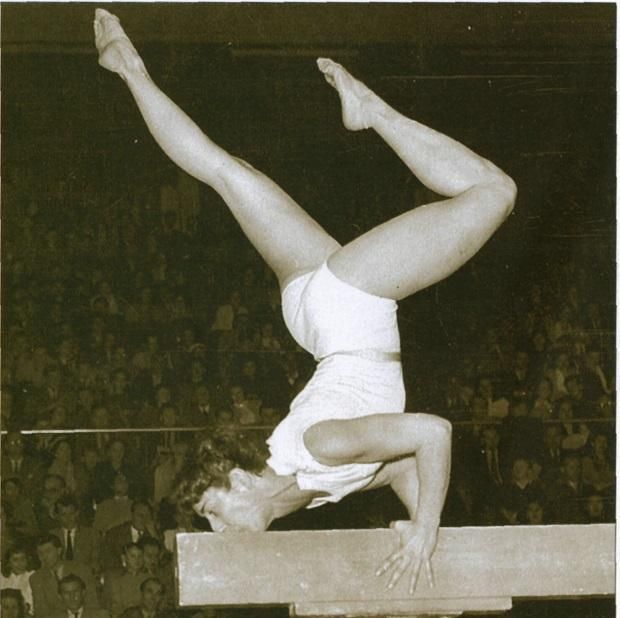
PABLO CASALS AND THE HEAVENLY CELLO SOUND
The then four-day-old Ágnes, was born as Ferenc Klein's, an emerging meat industry business and self-made man from Szeged, and Rózsi Gyárfás' second child, seven years after her older sister, Vera. The father, expecting a boy, wasn't cracked with joy which he compensated by raising her athletically, so that she felt safe in the water, on the snow and on the ice. They made regular trips with the Börzsöny Tourist Association (for example, with Los Angeles and Berlin Olympic champion sabre fencer, Endre Kabor). The Danube Bend, especially Nagymaros was a permanent destination for them. While paddling on the Danube, she often thought of connecting the two paddles, and let herself flow with the water. Of course, she would always make sure not to drift too far away from the boat. In addition to the physical training, she didn't neglect the mental one either. She has played the cello from elementary school, and listened to the instrument's greatest player, Catalonian Pablo Casals. They have regularly visited the Vigadó Music Hall, the Budapest Academy of Music or the City Theater (today known as Erkel Theater) and could often enjoy the magic of Casals when he visited Budapest every year (even twice) between 1926 and 1937. She could be like the Czech cellist, composer and professor at the Budapest Academy of Music, David Popper, who allegedly declared that if he knew he was alive for one more hour only, he would take himself to Casals' concert. In his performances, the heavenly sound of cello made Keleti sensitive to the artistry that manifested itself into gymnastics during her sports career.
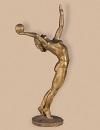
Was she made of steel, tempered and masculine soul? They are all due to her later fate... She left the only Jewish sports club, the Vívó és Atlétikai Club in 1938 because she wanted to play sports at the highest level possible. The tarnished Nemzeti TE on Szentkirályi Street gave her such opportunity. Her coach was none other than the grandson of József Keresztessy, the founder of Hungarian fencing who also won the title of Master of Fencing in 1842. Keleti says that she might not have learned everything from him, Uncle “Jóska” handled the mace excellently, and the technique of using a mace helped her in the rhythmic gymnastics exercises in the national team. She won her first team champion title in May 1940 in Nagykőrös and earned her first win in free routine in December in NTE's hall. “After all, the eagle-eyed pole researchers managed to detect a stove in which, horribile dictu, a fire flared. However, this stove couldn't be approached even for a sugar ticket,” wrote Képes Sport.
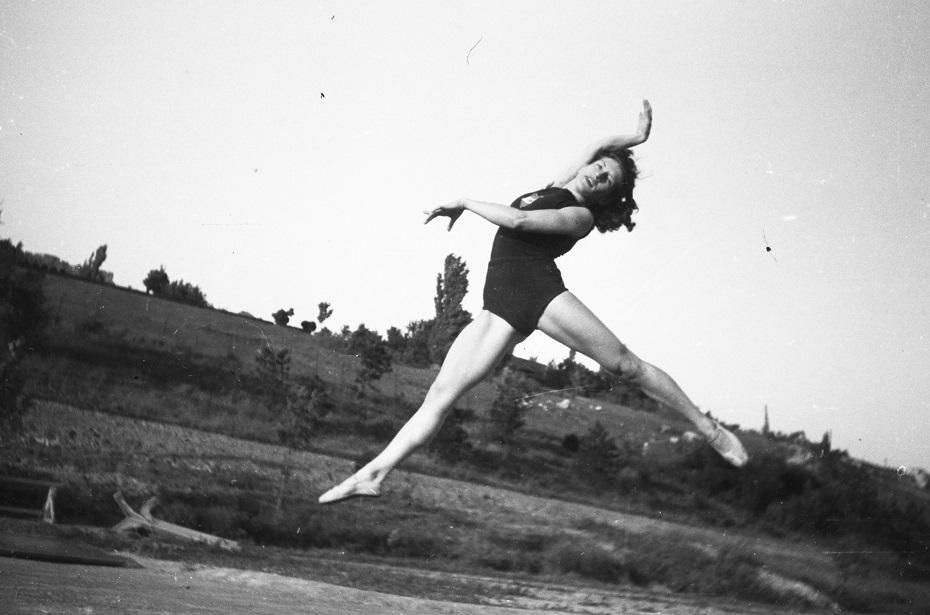
FROZEN BREATH, SURVIVING WITH PURCHASED IDENTITY
Jewish laws breathed in even more frozen air. Referreing to the decision of the National Council of Physical Eduation to misinterpret the decree of the Minister of Religion and Public Education on Jewish Associations published in June 1941, Dénes Péter, NTE's foreman, was forced to dismiss Ágnes Keleti from the club: “... we love you very much and are satisfied with you. We are really sorry but...” (Only VAC, a club or two, including Haggibor in Northern Transylvania were Jewish clubs, so Keleti could've continued competing according to the law...) With this, a cruel hurdle race of 5 years had begun. Ferenc Klein, co-owner of Exporco (founded in 1936) that specializes in the processing and marketing of pork, pork ham and other meat products exported to England and the United States, was overwhelmed by the anti-Jewish measures in the country. Keleti couldn't have been accepted to university, so she went to learn a profession under Master furrier Ferenc Venczel in his workshop on Fehérhajó Street. She had worked there for two year serving as an assistant. She sewed furs, lined furs, and her master even taught her how to tailor a fur coat. She got married in 1944 to avoid labor camp. After the German occupation, during deportation she didn't wear the Yellow Star and didn't move into one of the buildings separated for Jews. Instead, she purchased Christian Piroska Juhász' documents. For six months, as Piroska, she worked with master furrier Varga and his family in Szalkszentmárton, a village in Hungary, worked at a gun factory, and was a maid at a family with two children – as it turned out later, the husband was the deputy commander of the Arrow Cross Party... She was worried about her mother, older sister, and nephew. Auschwitz took her father, and his husband, weakened, but returned home alive from Mauthausen, Austria. And the list could still go on.
| The world's oldest Olympic champion is the 100-year-old Ágnes Keleti who earned this title on April 13, 2019 after the passing of Finnish Lydia Wideman at the age of 98 and 331 days. Wideman became the first female Olympic champion cross-country skier who won gold in 1952 in Oslo. Keleti and Wideman both earned their first (and also the last for Wideman) Olympic gold at the age of 31. There was another Hungarian athlete who led the list of the Oldest Sportsmen. Sándor Tarics was part of the water polo team that won in 1936 in Berlin. He was considered the oldest gold medalist between August 2, 2011 and May 21, 2016. He passed away at the age of 102 years and 241 days in Belvedere, California, USA. Below, we have compiled a list of the oldest living gold medalists, and it shows that one must be born in the winter to reach Methuselah's age... |
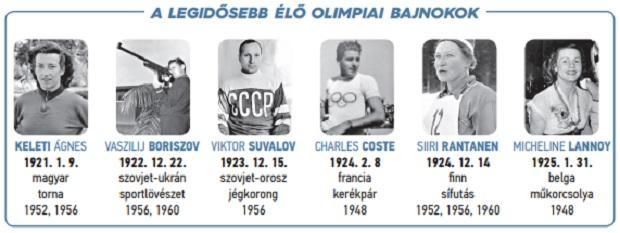
She didn't look for trouble, but still had trained hard for five years on the wrong side of life. How did Miklós Radnóti write to Aladár Komlós declaring himself an emphatically Hungarian poet on May 17, 1942 after 3 months of forced labor? “My Judaism is my ‘life problem' because the circumstances, laws and the world made it so.” Radnóti got Christened on May 2, 1942 at the St. Stephen's Basilica but didn't survive the Nazi period. On the other hand, Ágnes Keleti escaping her “Piroska Juhász” identity, she could restart her life, her gymnastics career. History has deprived her from many titles and from the 1940 and 1944 Olympic Games, but she focused on the next occasion: in 1945, she won in rhythmic gymnastics and free routine, and in 1947 Margit Csillik, the national team's head coach stated: “she places first on every apparatus and floor exercises. She really approaches perfection.” This was her first time to compete in all-round, but the 1948 London Olympics (where there was only team competition for women) seemed to be the continuation of her unlucky life or rather the last station. Two days before the competition, she suffered an ankle rupture after jumping off from the ring... Another four years to wait, and also because of the decision of the Soviet “bosses,” Hungary's participation at the first post-World War II World Championships in Basel in 1950 was off. Obstacle after obstacle.
| NAME | SPORT | GOLD | SILVER | BRONZE |
| Ágnes Keleti | gymnastics | 5 | 3 | 2 |
| Krisztina Egerszegi | swimming | 5 | 1 | 1 |
| Danuta Kozák | kayak-canoe | 5 | – | – |
| Katalin Kovács | kayak-canoe | 3 | 5 | – |
| Natasa Douchev-Janics | kayak-canoe | 3 | 2 | 1 |
| Katinka Hosszú | swimming | 3 | 1 | – |
| Gabriella Szabó | kayak-canoe | 3 | 1 | – |
MOTHERHOOD OVER FOURTY, IN A BOAT ONCE AGAIN
She waited for the Helsinki Summer Games at the age of 31, and if not because of race, but because of politics, did she feel in “quarantine” again as athletes from Socialist countries lived separately in Otaniemi. On July 23, the miracle happened: her career was finally gilded by her floor exercise. She could've stopped at this point, but she didn't want to. She loved to travel, see the world and get enough of it. On her first and last World Championships, in Rome in 1954, she triumphed on the uneven bars even while injured, and at the 1956 Olympics, at almost thirty-six years of age, led the table. In Melbourne, only Hungarian and Soviet women shared the top of the podium: in individual, Ágnes Keleti and Larissa Latinina who is 13 years younger than the Hungarian classic. On the day of success, on December 7, Keleti earned three gold medals: one in floor in the morning, two in uneven bars and balance beam in the afternoon. She won them after a night when she couldn't close her eyes because the beginning of her career and the years of humiliation flashed through her mind. After winning with another gold with the rhythmic gymnastics team (the routine was almost entirely choreographed by her for Bartók's 5/8 beat), she would've returned home with four gold medals.
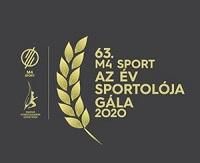
But she stayed abroad. (Her sister had been living in Australia, and after the Olympics, their mother could join them.) It's another question that in 1957, after a short stay in Germany, she chose Israel as her home where she built up the sport of gymnastics and bought the first apparatus with the money she earned from a TV appearance in Munich. She also has trained the national team for 20 years. She used to live in Herzliya close to the coast. Even after the age of 90 she took daily walks for an hour, swam and exercised regularly. She decided to move back to Hungary 5 years ago. Even in 1989, not forgetting the past bad experiences, she couldn't call Hungary her “home.” “For me, Israel has been my home for more than thirty years,” Keleti stated when she visited Budapest on the occasion of her fifty-year graduation reunion as a former student of the Evangelical High School in Deák Square. Even with long delays, she always benefited from the good, including the feeling of motherhood. She married for the second time in 1959, this time in Israel. She gave birth to his sons Daniel and Rafael at the age of 41 and 43, respectively. She has a exceptionally close relationship with both of them. In May 2015, Rafael asked Tamás Wichmann to organize a little rowing event on the Danube for his mother in Vác, where she was able to dive the paddles into the water of her childhood for ten minutes.
The legendary canoer died in February 2020 at the age of 72 after long suffering - Ágnes Keleti, who always thinks about life instead of numbers, is a hundred years old. “I enjoy life for as long as I can. There are as many as there are,” she said in an interview in these columns five years ago.
Well, there are definitely a hundred already. How many more?
No one can tell.
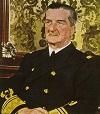
(The original article was issued in Képes Sport, Saturday appendix of Nemzeti Sport, on January 9, 2021.)
(Translator: Vanda Orosz)
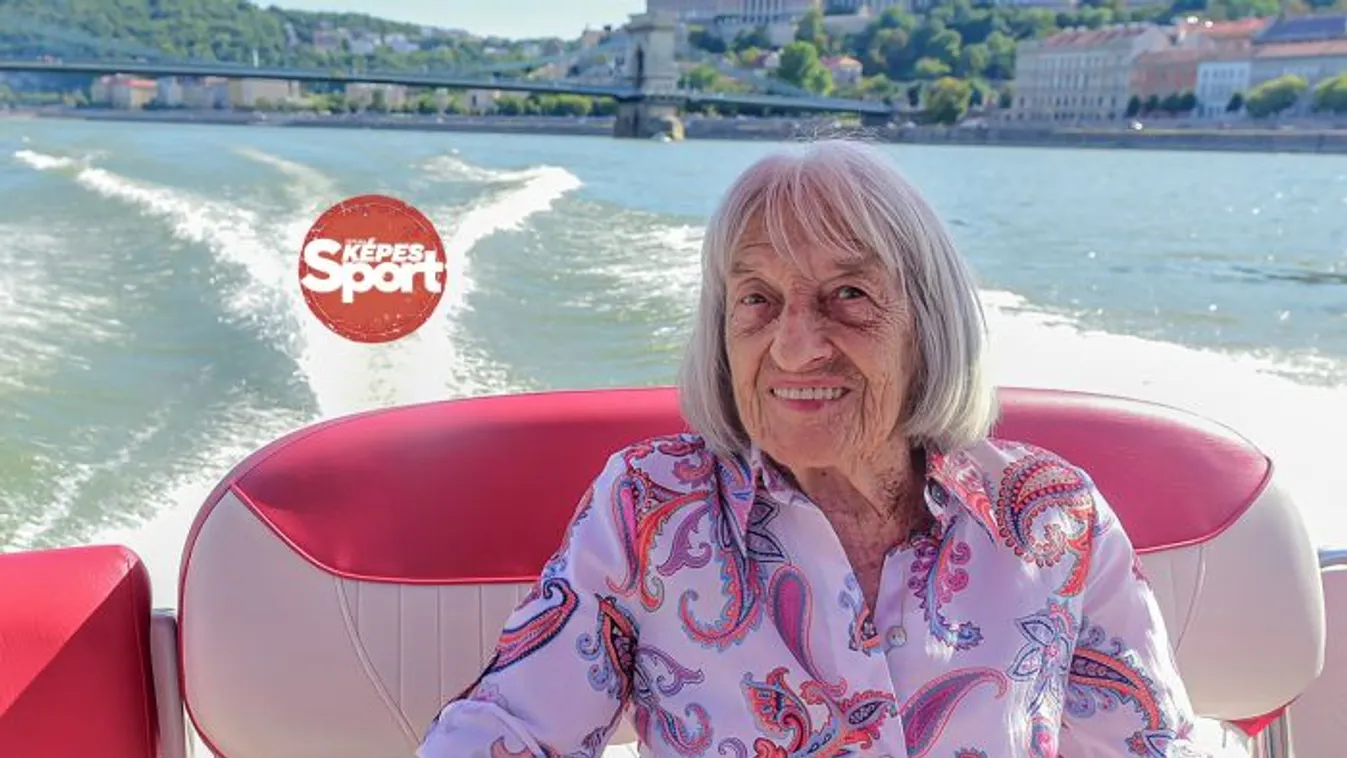
Csak itt volt otthon – Keleti Ágnes-sorozat, utolsó rész
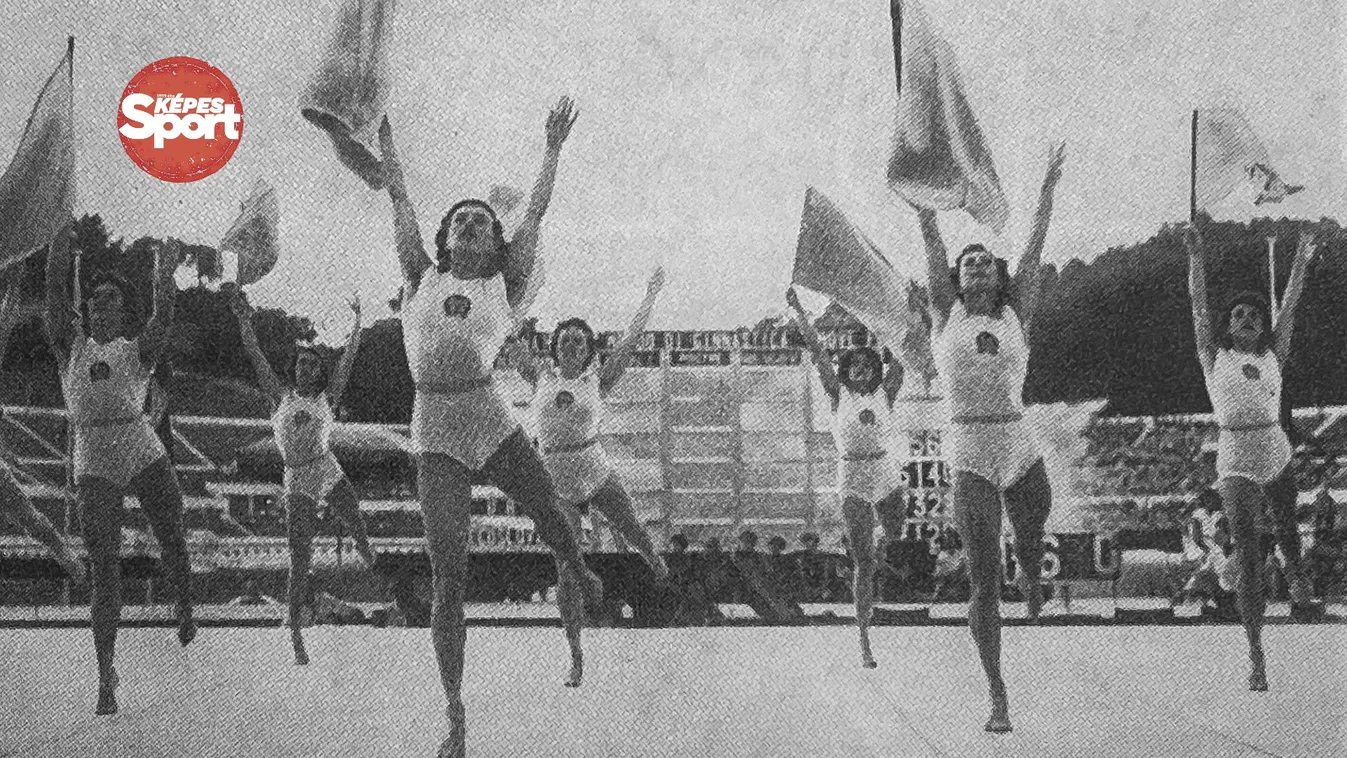
Lepontozták a ruszkik – Keleti Ágnes-sorozat, 3. rész

Eljött a pillanat – Keleti Ágnes-sorozat, 2. rész

